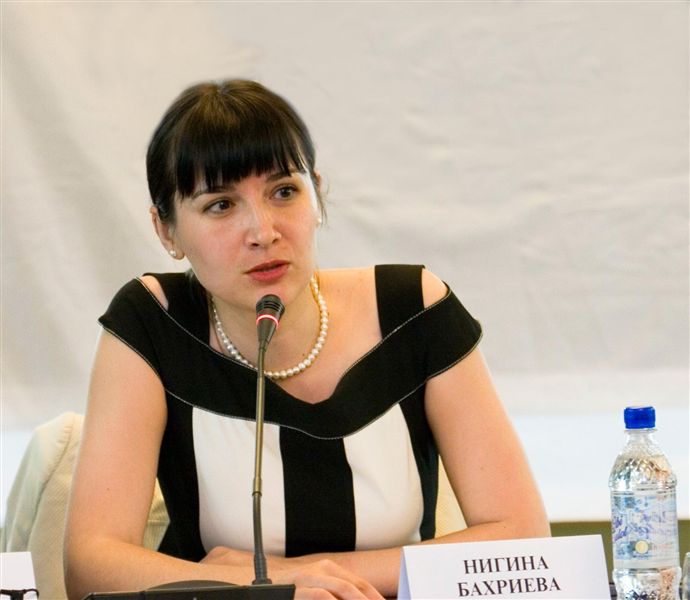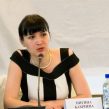
Kyrgyz Authorities Deny Entry to Human Rights Activists
Publication: Eurasia Daily Monitor Volume: 6 Issue: 225
By:

The number of human rights activists who have been denied entry to Kyrgyzstan has spiked this year. On December 2, Tajikistan’s prominent human rights activist Nagina Bakhriyeva was denied entry to the country upon her arrival from Dushanbe to Bishkek’s Manas airport (www.24.kg, December 2). Earlier this year, two Russian activists from Memorial human rights group were similarly denied access to Kyrgyzstan. At least one western human rights activist has been banned from entering the country in the past two years.
Bakhriyeva’s case raised widespread concerns among Kyrgyzstan’s human rights activists and NGO’s. Many saw a direct link between Bakhriyeva’s ban on entering the country with her September training of Kyrgyz lawyers on how to handle religious rights abuses and report violations to international organizations. Bakhriyev’s work with Kyrgyz lawyers followed Kyrgyz authorities’ harsh suppression of residents in the southern city Nookat in October 2008 who protested against the government banning the celebration of an Islamic holiday (www.hrw.org, December 3).
“Instead of trying to jointly study and solve the problem of human rights… law enforcement structures continue making new mistakes,” according to an NGO joint statement (www.centrasia.ru, December 7). Ironically, Bakhriyeva is known in Tajikistan for her long standing constructive collaboration with the Tajik government in the realm of human rights.
Before deporting Bakhriyeva, Kyrgyz customs officials insisted that she refrained from publicizing problems at the border in return for allowing her future entry to Kyrgyzstan (www.ferghana.ru, December 3). After detaining her for two hours, Kyrgyz authorities deported the human rights activist without providing any official explanation for the deportation. Similar scenarios have also been experienced by previously deported activists. Bakhriyeva and other deported foreigners will not be able to visit Kyrgyzstan during a ten-year period.
“It is likely that decisions on who is to be denied entry into the country are made on a ministerial level”, one Kyrgyz politician told Jamestown (December 5). Since the presidential elections last July the decision-making process has been split between two major government figures. President Kurmanbek Bakiyev’s son Maksim reportedly oversees the economic sector and cadre politics as he heads the newly-formed Central Agency on Development, Investment, and Innovation. While the president’s brother Zhanysh Bakiyev serves as the head of the National Security Service and has strong leverage over security structures as well as being able to make decisions on how Kyrgyz customs are managed.
“Both camps can function independently of one another,” the politician explained. The decision on refusing entry to certain individuals is taken by security structures without the participation of other government institutions. Neither Maksim nor Zhanysh Bakiyev seems to prioritize the country’s democratic development; instead they focus on defending and expanding their spheres of interest as part of an ongoing process. Experts expect more significant cadre changes in the government and foreign service in the coming months, reportedly masterminded by Maksim. Rumors in Bishkek also indicate that Zhanysh might form his own political party to foster his power.
Meanwhile, a number of NGO leaders, journalists and politicians who fled Kyrgyzstan under the Bakiyev regime are unable to return to the country. Although Kyrgyz Ombudsman Tursunbek Akun has promised to investigate Bakhriyev’s case, he has not been successful in any previous investigation into the cases of banned human rights activists.
Today Kyrgyzstan is left without virtually any active political opposition. Several prominent opposition leaders have been effectively silenced, either through arrests or public shaming. As one member of the Kyrgyz parliament (MP) says, it is only possible to show opposition to the regime if you are part of the ruling Ak Zhol party. Having access to the party leaders and Maksim, Ak Zhol members can discuss their ideas and viewpoints. Ak Zhol members are also able to extend the party’s outreach using personal authority. “But those outside of Ak Zhol are destined to run behind the train,” the MP observed.
The incident with Bakhriyeva marks a worsening of Kyrgyzstan’s democratic record. Aside from tighter regulations on entry, this year has witnessed several contract killings of politicians, beatings and intimidation of journalists and NGO activists. NGO’s dealing with religious issues are closely monitored by the government. According to Human Rights Watch, the Kyrgyz government is pressuring individuals engaged specifically in investigating abuses of religious rights in southern Kyrgyzstan.




